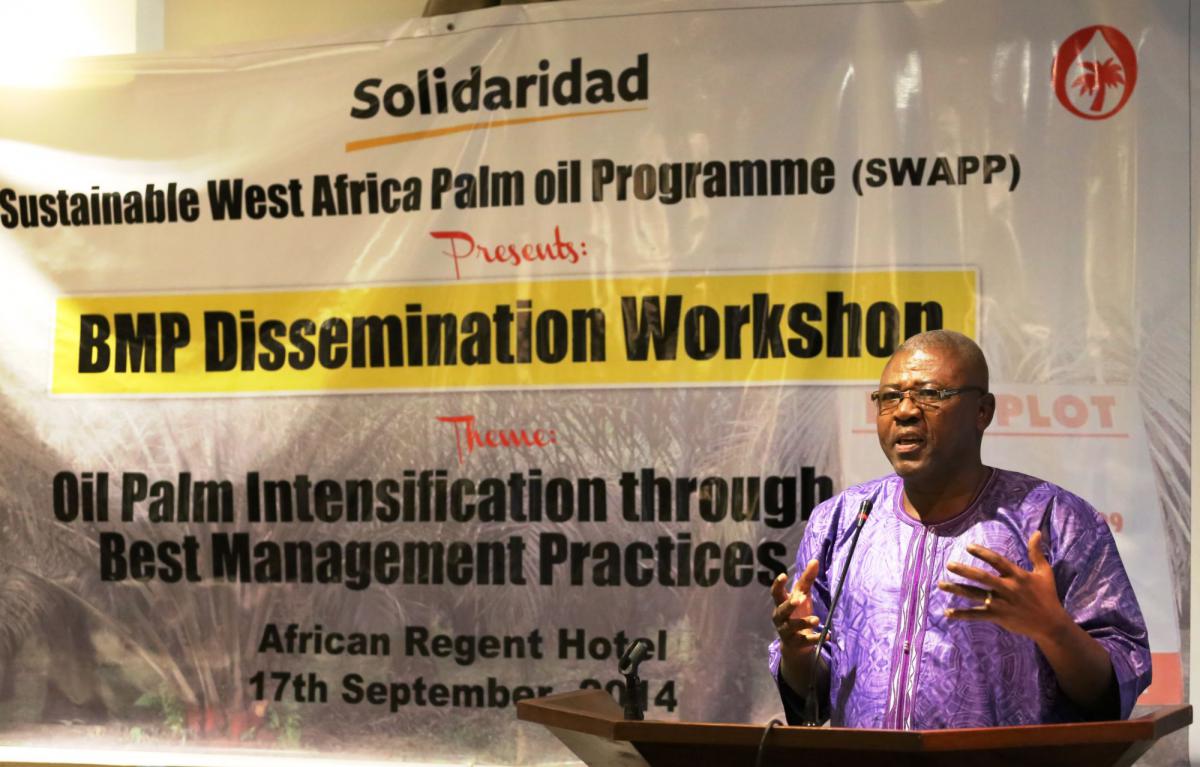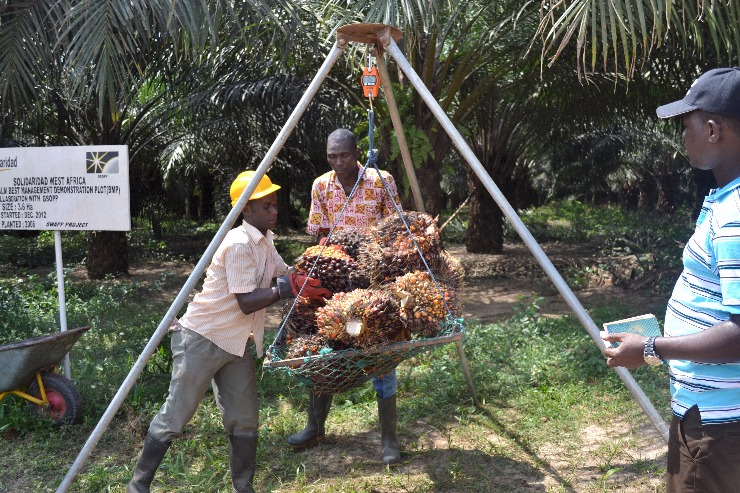Solidaridad launched the extended cocoa and oil palm programmes in Ghana and Cote d’Ivore and introduced them, for the first time, in Liberia and Sierra Leone, where many smallholder farmers and their families depend on the commodities to improve their livelihood.
The Dutch government, through its embassy in Accra, supports both programmes with the Swiss Secretariat for Economic Affairs (SECO) providing additional funding for the oil palm programme in Ghana.
A sunny future for Sunar
“Cultivating and processing oil palm in Sierra Leone is not an easy task”, said Sunar Amara, an oil palm farmer. “The crop variety that we produce here takes a long time to bear fruit. When the fruit finally comes, harvesting is a nightmare”.
Sunar is among the thousands of smallholder farmers who are benefitting from best management practices that boost the productivity of oil palm under SWAPP in the focus countries.
The improved variety that Solidaridad has introduced to us is indeed the game-changer. It grows quicker and the yields are plentiful. With the potential to integrate additional food crops in my farm, I know I can greatly improve my household’s food security and drive poverty away. – Sunar Amar, oil palm farmer

A two-pronged approach to sustainability
On the one hand, CORIP will bring speed and scale to the creation of small and medium enterprises (SMEs) as a private-sector-driven vehicle to deliver market-based intensification and rehabilitation services to cocoa farmers.
SWAPP, on the other hand, will scale up sustainable improvements developed in the SME sub-sector through the large-scale adoption of the sustainable intensification of oil palm cultivation and Fresh Fruit Bunches (FFB) processing through active private sector participation.
Both interventions are expected to improve the lives of thousands of farmers, service providers, and the people who depend on them while scaling up existing production systems to make them more climate-resilient and sustainable, boost yields and guarantee better livelihoods for farmers from 2017 to 2020.
The case for cooperation
Cocoa and oil palm are important cash crops for West Africa. The region produces over 60% of the world’s cocoa supply and 6% for oil palm. Low productivity has long affected the region’s contribution, and smallholder farmers have suffered as a result.
Through a pilot in Cote d’Ivoire, Ghana and Nigeria from 2013 to 2017, Solidaridad demonstrated that smallholder cocoa and oil palm farmers in West Africa could be better served if the private sector is supported to deliver robust service provision that brings innovations to speed and scale.
The cocoa and oil palm programmes align with the sustainable agriculture and food security objectives of the participating partners, including governments of the Netherlands, Switzerland, Cote d’Ivoire, Ghana, Liberia and Sierra Leone.

